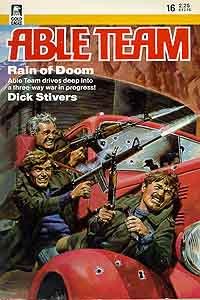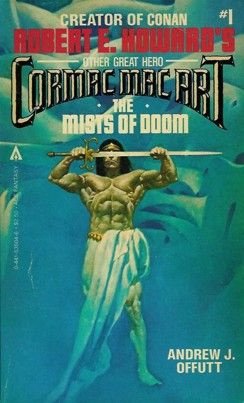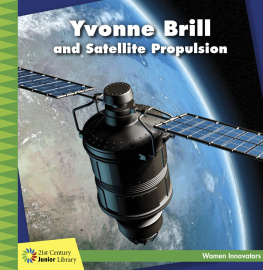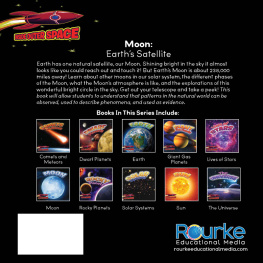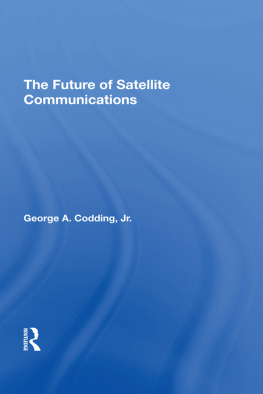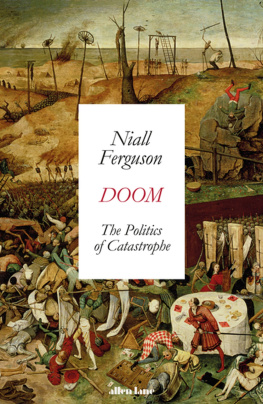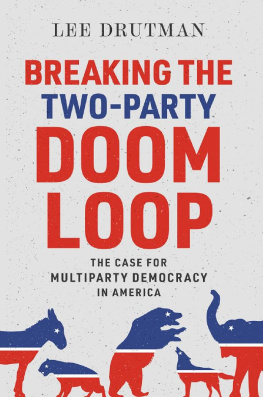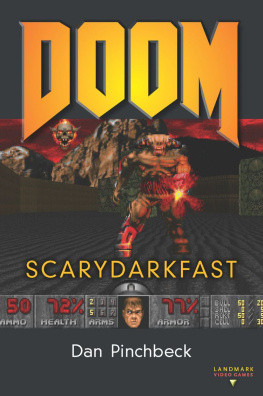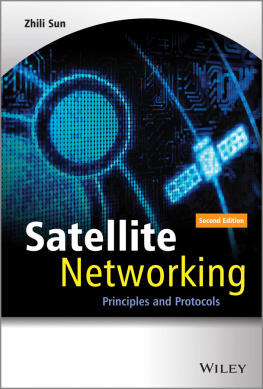Sharp - The Satellite of Doom
Here you can read online Sharp - The Satellite of Doom full text of the book (entire story) in english for free. Download pdf and epub, get meaning, cover and reviews about this ebook. year: 2010, genre: Art. Description of the work, (preface) as well as reviews are available. Best literature library LitArk.com created for fans of good reading and offers a wide selection of genres:
Romance novel
Science fiction
Adventure
Detective
Science
History
Home and family
Prose
Art
Politics
Computer
Non-fiction
Religion
Business
Children
Humor
Choose a favorite category and find really read worthwhile books. Enjoy immersion in the world of imagination, feel the emotions of the characters or learn something new for yourself, make an fascinating discovery.
The Satellite of Doom: summary, description and annotation
We offer to read an annotation, description, summary or preface (depends on what the author of the book "The Satellite of Doom" wrote himself). If you haven't found the necessary information about the book — write in the comments, we will try to find it.
The Satellite of Doom — read online for free the complete book (whole text) full work
Below is the text of the book, divided by pages. System saving the place of the last page read, allows you to conveniently read the book "The Satellite of Doom" online for free, without having to search again every time where you left off. Put a bookmark, and you can go to the page where you finished reading at any time.
Font size:
Interval:
Bookmark:
The Satellite of Doom
By
D. D. Sharp
e
r
u
t
c
i
P
While A World Waited Breathlessly The Satellite Went On and On, Repeating Its Circles of Doom!
NO idea more startling in the history of our earth has been proposed than that put forward by
Hermann Oberth, the German rocket expert. By sending a rocket aloft some four or five
hundred miles above the earth and giving it a speed of about 5 miles a second, Herr Oberth
states, the rocket will circle the earth until eternity without further expenditure of power!' A
terrific idea, filled with the most stupendous possibilities for the people of the earth. It may
revolutionize transportation, or warfare; it may even change the whole course our lives.
But although it is an idea filled with the most dramatic and adventurous suggestions Mr.
Sharp does not want to deal with them fantastically. He has written instead a story of intense
realism sticking close to life and truth, with characters that live and breathe. And so he has
made this story as vivid and understandable as is humanly possible.
CHAPTER I.
JUST before they reached the front steps Professor Mullin stopped and touched Clifford on the arm.
"There is one man you must watch."
"Who?" Clifford asked, still occupied with the crisis ahead of him.
"Briggs. Rothberg calls him BB, but he isn't an air gun charge at all. He is buckshot with a full charge of smokeless powder behind him."
"Just what do you mean?" Clifford asked with interest awakened.
"Briggs is a keen chemist, maker of models for Rothberg's would-be inventors. He is Police Commissioner with a strong political influence and he is the husband of Rothberg's only daughter, ambitious and dangerous. Don't let him know how much money Rothberg is thinking of putting into your scheme."
"What does he look like?"
"Tall and unforgetable. Not much of a description, eh?"
"Well, I don't know about that. There aren't many men who are unforgetable as far as personal appearance is concerned."
"Briggs is. He'd impress the most phlegmatic; a deep growl, large protruding black eyes, overscored with crow feathers. He drops into these meetings sometimes. I hope he doesn't come in tonight, but if he does, ramble off on some unimportant detail. He might queer your whole plan."
"Would Rothberg allow him to interfere?"
"No. Rothberg doesn't take dictation from anybody. But Briggs is buckshot, remember that, and I believe he suspects what's up."
They mounted the steps and followed a footman to a long room, down the center of which ran a polished table.
Clifford's zero hour was at hand. He knew by reputation every man around that table. They were all outstanding men in their particular fields of science. Directly in front of him sat J. G. Reed who had more than once startled the world with ideas of matter and space; next was Played who experimented with rockets; Stortz the astronomer who had at last proved the rotation of Venus; Gertz the electrical wizard; Gurly, who had explained the apparent discrepancy in the ratio of gravitation between Mercury and the sun; Ralls, who had taken the new tidal theory of the formation of the earth and blown it to smithereens; Phillips who had set forth a complicated thesis which had grown out of Einstein's Relativity, and a half dozen others. At the head of the table was, of course, old Jacob Rothberg, who, with the magnet of his money and personality had assembled these filings from the fields of science. Clifford caught the pale eyes of Professor Charles of Rothberg University appraising him. He felt a personal antipathy in that cold, passionless stare and it upset so he barely heard the opening of Rothberg's address. Even as he heard Rothberg calling upon him to explain his plan, he retained the uneasy sensation that the Professor was coolly dissecting him.
He shook off the uncomfortable feeling as he rose and the double row of white faces about the table turned toward him.
His big moment was at hand. He started speaking looking straight at Ralls, for Ralls flourished upon his reputation as an iconoclast, and would, of course, maintain his position as a breaker of idols and a, destroyer of dreams. Ralls' lean features were ravenously alert as Clifford began.
"Gentlemen, my proposal is to launch a ship just beyond the atmosphere so that it will form a satellite of the earth. It would need no refueling and no additional power, except that required to send cargo to and from the ship."
BACK of Ralls a door opened and through it a man glided cautiously, stopped and closed the door behind him. Undoubtedly it was Briggs. The man's whole appearance was strange and unforgetable. Clifford hesitated, and then decided to go ahead and pay Briggs no attention; but he did not have an opportunity. Professor Charles rose, placed the tips of his long white fingers spiderlike upon the manuscript below him and cleared his stringy looking throat. Clifford was taken aback at the double interruption and folded his arms and waited calmly for what the psychologist had to say.
"Mr. Peterson," Professor Charles whined in a high, fine voice, "How do you know, or we know, that it is possible to project a ship beyond the field of gravity of our earth?"
"Sure," Briggs growled in that deep bass of his, "That's the berries! All he wants is to spend some of the governor's money!"
Rothberg hitched about in his chair to face his son-in-law, but the hard stare in the penetrating old eyes brought only a stubborn resistance. Rothberg signaled unmistakably for Briggs to leave the room and fire flashed between the two as Briggs leaned casually against the marble wainscoating and extracted a cork-tipped cigarette and stuck it between his lips.
Rothberg half rose from his chair and roared, "BB you get out!" Briggs drew himself erect, his cheeks flaming; then he sent a long cloud of defiant smoke in Rothberg's direction, shrugged his shoulders and growled in his bearlike bass:
"All right, governor."
Then he left the room.
Clifford turned his attention back to Professor Charles and continued.
"Of course it is impossible to fire any projectile totally beyond the earth's gravity. Newton has shown that each body in space is attracted to every other according to their masses and the inverse ratio of the square of their distances."
"So, so," the professor coughed slightly, then took his glasses from his nose and held them as a pointer in Clifford's direction as he continued.
"But one can not get around the fact that you would have to send your ship far enough from the earth to enter into cosmic space if it is to float continually without falling. How do you know that you can project anything that far? How do you know how far that is?"
Clifford tried to be patient, but it was quite evident that however eminent Professor Charles was in his own line, he knew very little of astronomy.
"Bodies do not float in space," Clifford began. "They are pulled toward each other. What keeps them from flying together in a huge mass is their velocity, which is much greater than that of a highpowered rifle bullet as it leaves the gun. They move with hurricanes of speed which would belittle cyclones. It is this that overcomes the pull of gravitation."
He reached into his pocket and extracted a small rubbber ball which was attached to a rubber string.
"You will notice when this little ball is idle it hangs toward the earth." He began to whirl the ball around and around and it went humming over his head.
"When enough speed is attained gravity is overcome and the ball rises into the air. To make the illustration plain, let the string be the pull of gravity and my thumb be the sun." He whirled the ball faster. The rubber string stretched, as he went on.
Next pageFont size:
Interval:
Bookmark:
Similar books «The Satellite of Doom»
Look at similar books to The Satellite of Doom. We have selected literature similar in name and meaning in the hope of providing readers with more options to find new, interesting, not yet read works.
Discussion, reviews of the book The Satellite of Doom and just readers' own opinions. Leave your comments, write what you think about the work, its meaning or the main characters. Specify what exactly you liked and what you didn't like, and why you think so.







